Abarth 500 595 695 vs Hyundai IONIQ 5 – Which car suits you better?
Both models have their strengths – but which one suits you more?
Compare performance, efficiency, price and space directly: Abarth 500 595 695 or Hyundai IONIQ 5?
Costs and Efficiency:
When it comes to price and running costs, the biggest differences usually appear. This is often where you see which car fits your budget better in the long run.
Abarth 500 595 695 has a to a small extent advantage in terms of price – it starts at 32600 £, while the Hyundai IONIQ 5 costs 38500 £. That’s a price difference of around 5923 £.
In terms of energy consumption, the advantage goes to the Hyundai IONIQ 5: with 15.60 kWh per 100 km, it’s minimal more efficient than the Abarth 500 595 695 with 17.10 kWh. That’s a difference of about 1.50 kWh.
As for range, the Hyundai IONIQ 5 performs clearly better – achieving up to 570 km, about 305 km more than the Abarth 500 595 695.
Engine and Performance:
Under the bonnet, it becomes clear which model is tuned for sportiness and which one takes the lead when you hit the accelerator.
When it comes to engine power, the Hyundai IONIQ 5 has a convincingly edge – offering 650 HP compared to 155 HP. That’s roughly 495 HP more horsepower.
In acceleration from 0 to 100 km/h, the Hyundai IONIQ 5 is clearly quicker – completing the sprint in 3.50 s, while the Abarth 500 595 695 takes 7 s. That’s about 3.50 s faster.
In terms of top speed, the Hyundai IONIQ 5 performs convincingly better – reaching 260 km/h, while the Abarth 500 595 695 tops out at 155 km/h. The difference is around 105 km/h.
There’s also a difference in torque: Hyundai IONIQ 5 pulls clearly stronger with 770 Nm compared to 235 Nm. That’s about 535 Nm difference.
Space and Everyday Use:
Beyond pure performance, interior space and usability matter most in daily life. This is where you see which car is more practical and versatile.
Seats: Hyundai IONIQ 5 offers a bit more seating capacity – 5 vs 4.
In curb weight, Abarth 500 595 695 is evident lighter – 1410 kg compared to 1955 kg. The difference is around 545 kg.
In terms of boot space, the Hyundai IONIQ 5 offers clearly more room – 520 L compared to 185 L. That’s a difference of about 335 L.
In maximum load capacity, the Hyundai IONIQ 5 performs clearly better – up to 1580 L, which is about 1030 L more than the Abarth 500 595 695.
When it comes to payload, Hyundai IONIQ 5 distinct takes the win – 530 kg compared to 385 kg. That’s a difference of about 145 kg.
Who wins the race?
The Hyundai IONIQ 5 proves to be dominates this comparison and therefore becomes our DriveDuel Champion!
Hyundai IONIQ 5 is the better all-rounder in this comparison.
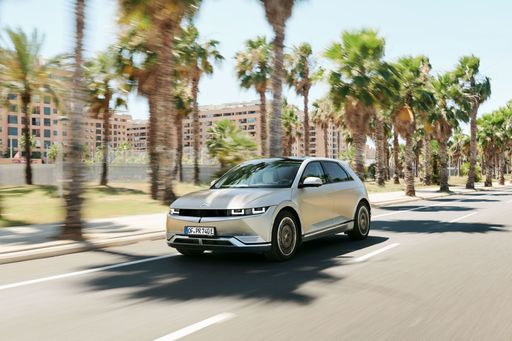 @ Hyundai Motor Company
@ Hyundai Motor Company
Hyundai IONIQ 5
Abarth 500 595 695
The Abarth 500, particularly in its 595 and 695 renditions, captures the spirit of Italian motoring with its compact yet aggressive design. Known for its lively performance and distinctive styling, this little powerhouse is a joy to drive, offering an engaging experience that appeals to enthusiasts. With its rich motorsport heritage, the Abarth 500 embodies the essence of fun and excitement on both the streets and the race track.
details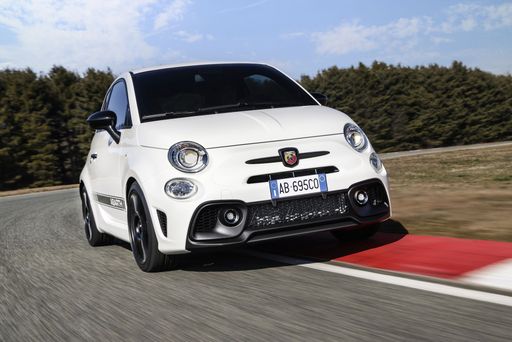 @ Abarth / Stellantis Media
@ Abarth / Stellantis Media
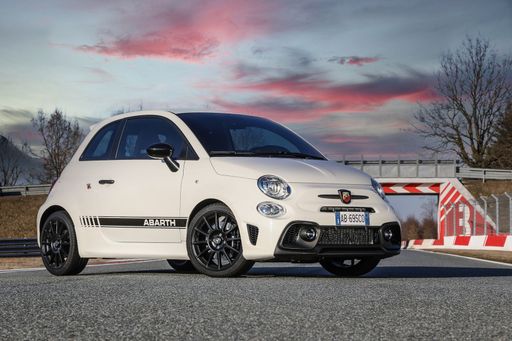 @ Abarth / Stellantis Media
@ Abarth / Stellantis Media
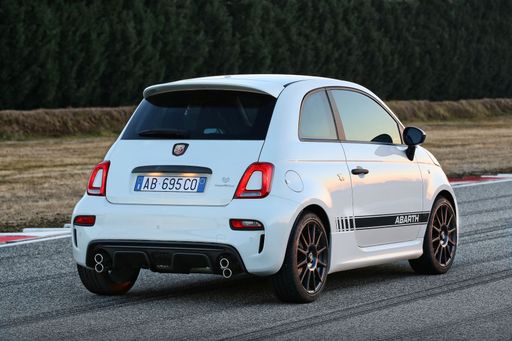 @ Abarth / Stellantis Media
@ Abarth / Stellantis Media
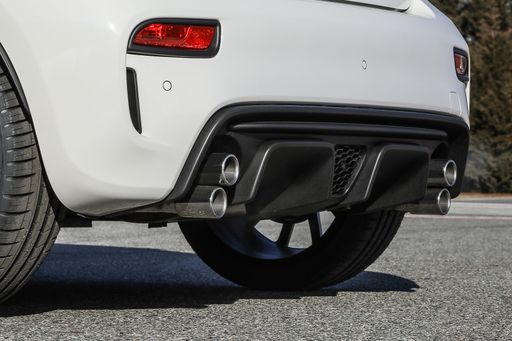 @ Abarth / Stellantis Media
@ Abarth / Stellantis Media
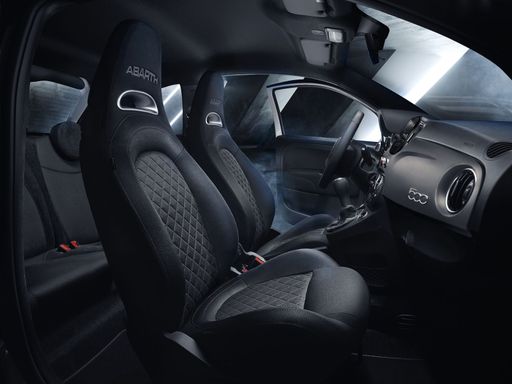 @ Abarth / Stellantis Media
@ Abarth / Stellantis Media
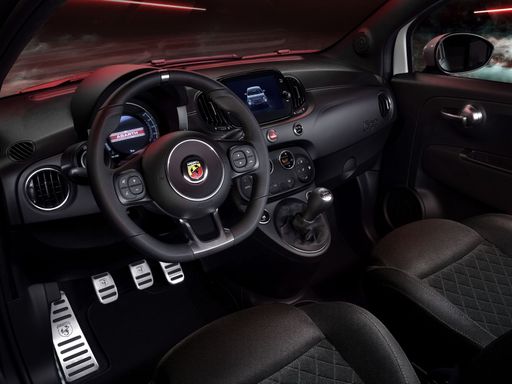 @ Abarth / Stellantis Media
@ Abarth / Stellantis Media
Hyundai IONIQ 5
The Hyundai IONIQ 5 showcases a bold and futuristic design that captures attention with its striking facade and sharp lines. This electric vehicle offers an impressive blend of performance and efficiency, making it a compelling choice for environmentally conscious drivers. Inside, the spacious and tech-forward interior provides a comfortable and engaging driving experience for both driver and passengers.
details @ Hyundai Motor Company
@ Hyundai Motor Company
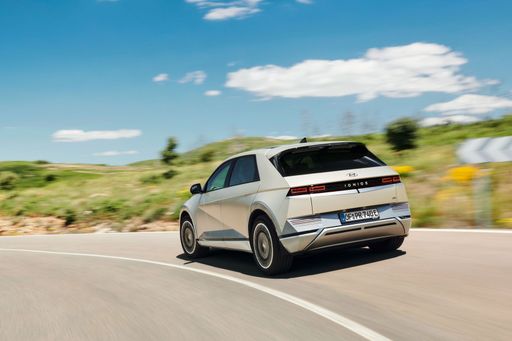 @ Hyundai Motor Company
@ Hyundai Motor Company
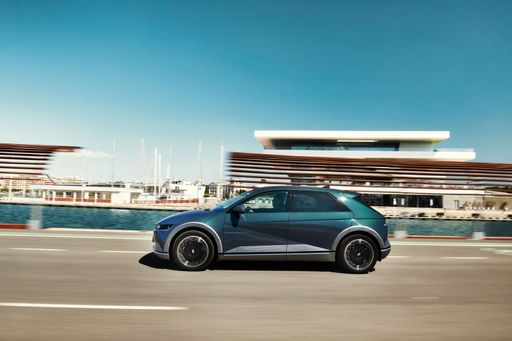 @ Hyundai Motor Company
@ Hyundai Motor Company
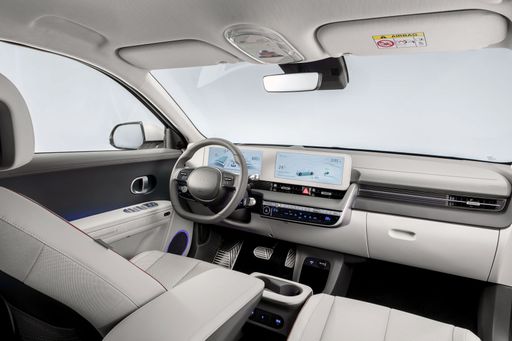 @ Hyundai Motor Company
@ Hyundai Motor Company
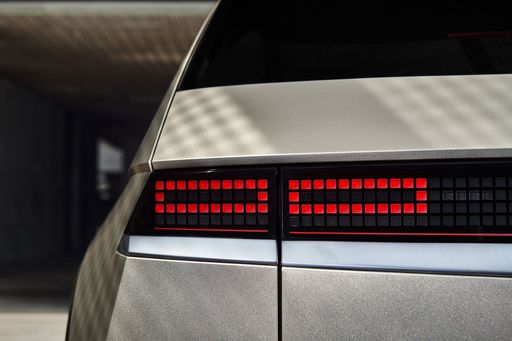 @ Hyundai Motor Company
@ Hyundai Motor Company
 @ Abarth / Stellantis Media
@ Abarth / Stellantis Media
|
 @ Hyundai Motor Company
@ Hyundai Motor Company
|
|
|
|
Costs and Consumption |
|
|---|---|
|
Price
32600 - 39400 £
|
Price
38500 - 64200 £
|
|
Consumption L/100km
-
|
Consumption L/100km
-
|
|
Consumption kWh/100km
17.1 - 18.8 kWh
|
Consumption kWh/100km
15.6 - 21.2 kWh
|
|
Electric Range
242 - 265 km
|
Electric Range
440 - 570 km
|
|
Battery Capacity
37.80 kWh
|
Battery Capacity
63 - 84 kWh
|
|
co2
0 g/km
|
co2
0 g/km
|
|
Fuel tank capacity
-
|
Fuel tank capacity
-
|
Dimensions and Body |
|
|---|---|
|
Body Type
Hatchback
|
Body Type
SUV
|
|
Seats
4
|
Seats
5
|
|
Doors
3
|
Doors
5
|
|
Curb weight
1410 - 1435 kg
|
Curb weight
1955 - 2275 kg
|
|
Trunk capacity
185 L
|
Trunk capacity
480 - 520 L
|
|
Length
3673 mm
|
Length
4655 - 4715 mm
|
|
Width
1682 mm
|
Width
1890 - 1940 mm
|
|
Height
1518 mm
|
Height
1585 - 1605 mm
|
|
Max trunk capacity
550 L
|
Max trunk capacity
1540 - 1580 L
|
|
Payload
370 - 385 kg
|
Payload
385 - 530 kg
|
Engine and Performance |
|
|---|---|
|
Engine Type
Electric
|
Engine Type
Electric
|
|
Transmission
Automatic
|
Transmission
Automatic
|
|
Transmission Detail
-
|
Transmission Detail
Reduction Gearbox
|
|
Drive Type
Front-Wheel Drive
|
Drive Type
Rear-Wheel Drive, All-Wheel Drive
|
|
Power HP
155 HP
|
Power HP
170 - 650 HP
|
|
Acceleration 0-100km/h
7 s
|
Acceleration 0-100km/h
3.5 - 8.5 s
|
|
Max Speed
155 km/h
|
Max Speed
185 - 260 km/h
|
|
Torque
235 Nm
|
Torque
350 - 770 Nm
|
|
Number of Cylinders
-
|
Number of Cylinders
-
|
|
Power kW
114 kW
|
Power kW
125 - 478 kW
|
|
Engine capacity
-
|
Engine capacity
-
|
General |
|
|---|---|
|
Model Year
2023
|
Model Year
2024
|
|
CO2 Efficiency Class
A
|
CO2 Efficiency Class
A
|
|
Brand
Abarth
|
Brand
Hyundai
|
Is the Abarth 500 595 695 offered with different drivetrains?
The Abarth 500 595 695 is offered with Front-Wheel Drive.
The prices and data displayed are estimates based on German list prices and may vary by country. This information is not legally binding.
